screenwriters
Patton Oswalt
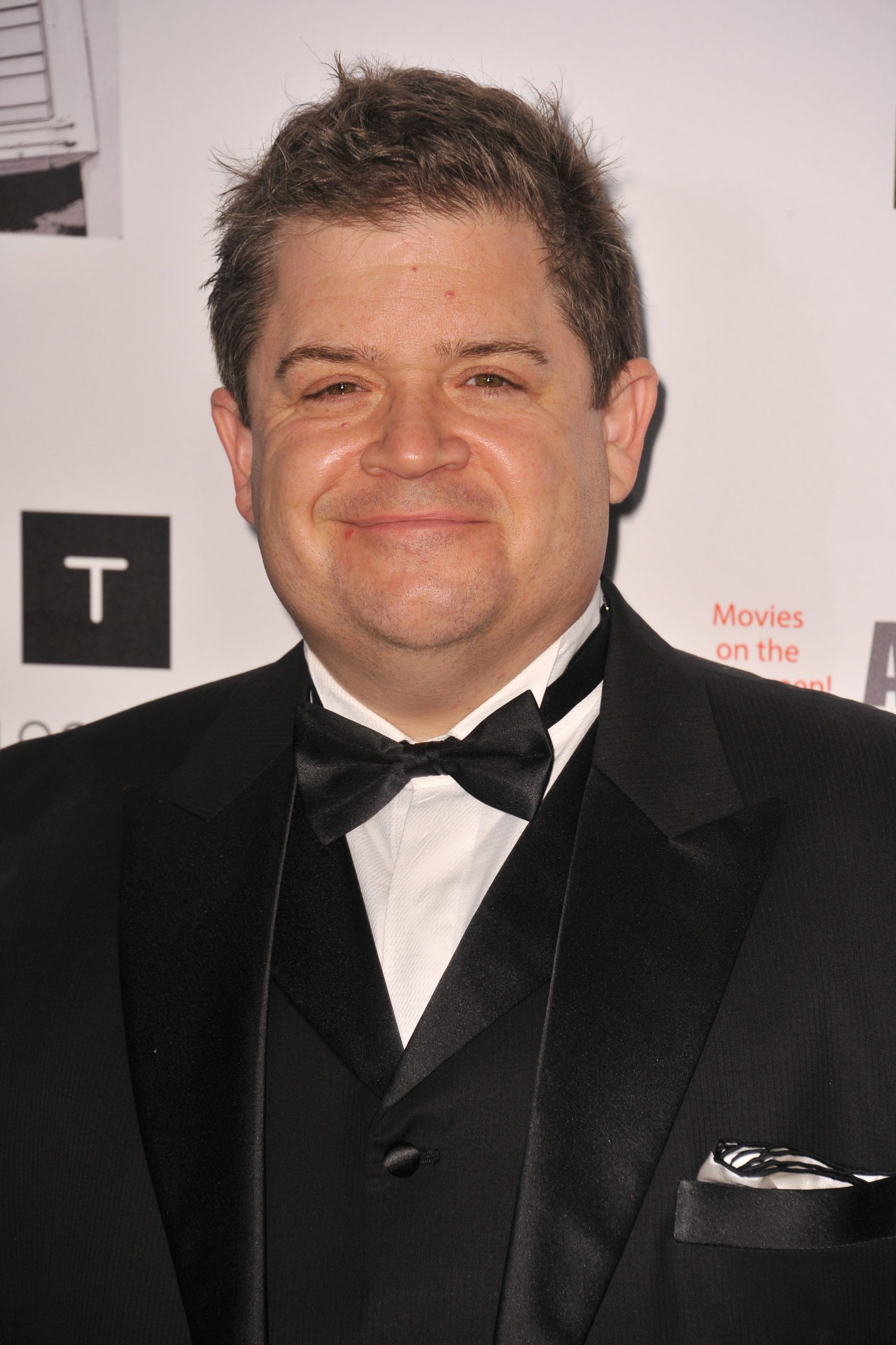
On this date in 1969, Patton Oswalt was born in Portsmouth, Va. His father was a Marine Corps officer who named him after Gen. George S. Patton. Oswalt began to perform stand-up comedy in the late 1980s, before graduating from the College of William and Mary in 1991. He became widely known after he starred in an HBO comedy special in 1996. He began to headline at comedy clubs nationwide and also started his career as an actor.
Much of his comedic material addresses popular culture and his daily life, but he has been known to mock religion and religious believers. For example, his “Sky Cake” routine characterizes religion as a trick played by smart weak guys on big dumb guys. He describes himself as an atheist.
From 1998 to 2007, Oswalt was a regular on the CBS show “The King of Queens,” playing the role of Spence. He has appeared in many small roles in movies, as a guest star on television shows including “Dollhouse” and “Nurse Jackie,” and done voice work for movies, television and video games. Notably, he voiced the main character, the rat Remy, in the 2007 Pixar film “Ratatouille.” He also starred in the 2009 live-action film “Big Fan.”
His supporting role in Jason Reitman’s black comedy “Young Adult” (2011) was nominated for several awards. Oswalt has also written for TV and film, as well as doing uncredited work on a variety of live-action comedy and animated film scripts.
In 2011 Oswalt released the book Zombie Spaceship Wasteland and appeared in “A Very Harold & Kumar 3D Christmas.” He originated the role of Billy Stanhope on “Two and a Half Men.” His memoir Silver Screen Fiend: Learning About Life from an Addiction to Film was published by Simon & Schuster in 2015, when it was announced he would appear in the reboot of “Mystery Science Theater 3000.” His comedy special “Talking for Clapping” was released on Netflix in 2016 and his special “Annihilation” followed in 2017 on Netflix.
Oswalt married true-crime writer Michelle McNamara in 2005 and they had a daughter, Alice, in 2009. McNamara had a very sad, untimely end at age 46 in 2016. He married actress Meredith Salenger the following year.
“My feelings on religion are starting to morph. I’m still very much an atheist, except that I don’t necessarily see religion as being a bad thing. … I’m almost saying certain people do better with religion, the way that certain rock stars do better if they’re shooting heroin.”
— Oswalt, The Onion A.V. Club (Aug. 31, 2011)
Rupert Hughes
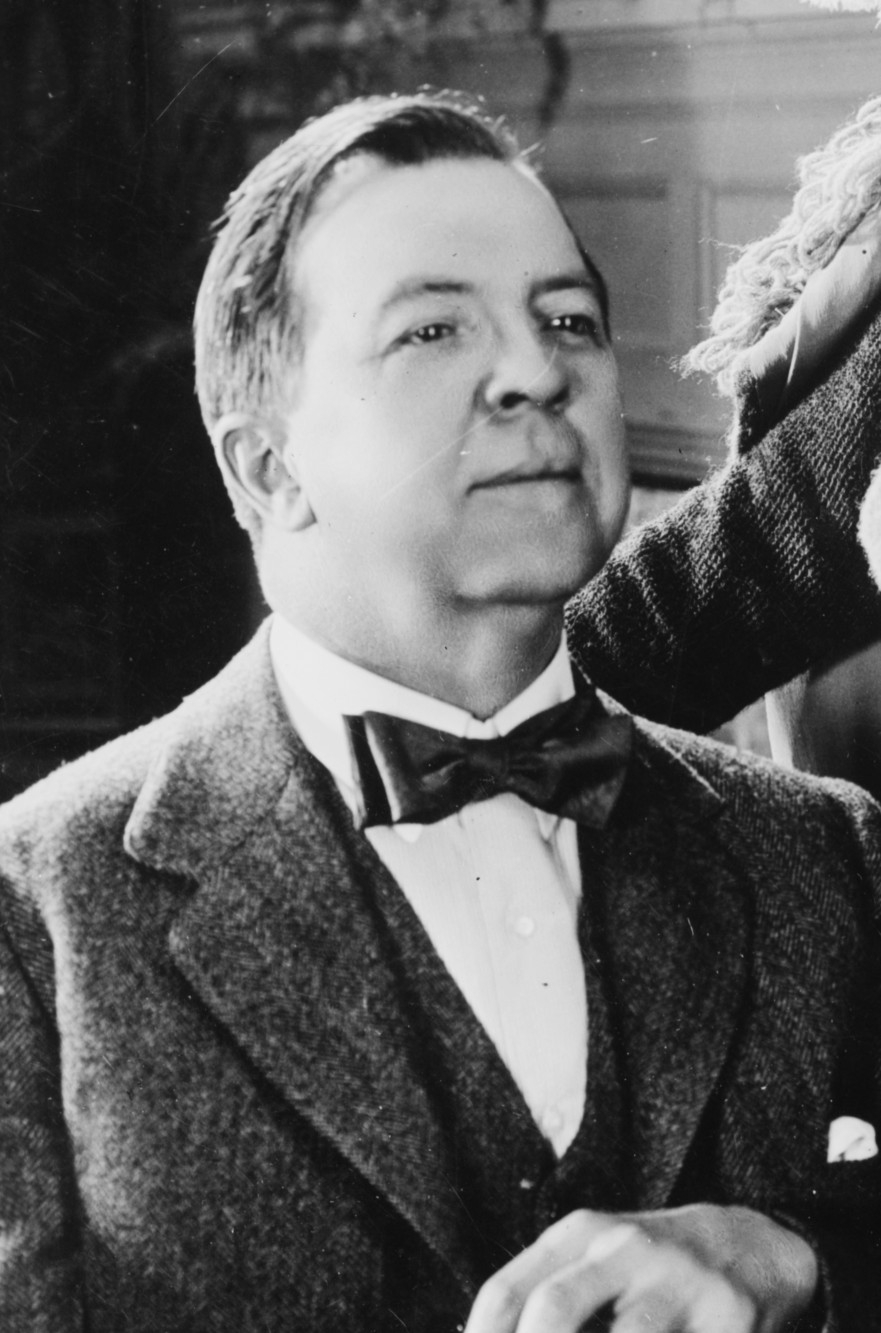
On this day in 1872, writer Rupert Hughes was born in Lancaster, Mo. The family moved when he was 7 to Keokuk, Iowa. He earned a B.A. from Adelbert College in Cleveland and a master’s from Yale, 1893. He served in the Spanish-American War and in the infantry in World War I. His biographical subjects included George Washington and Samuel Gompers. More than 50 movies were written, directed or based on Hughes’ stories and novels. He founded and served for decades as president of the Hollywood Screenwriters Club.
Hughes, the uncle of future billionaire Howard Hughes, had his greatest Hollywood success in 1928 when he was nominated for an Academy Award for Best Original Screenplay for “The Patent Leather Kid.”
Raised in the Congregational Church, Hughes began to lose his faith in college after reading the entire bible. In 1924 he wrote Why I Quit Going to Church, published by the Freethought Press Association, a forthright and thorough analysis of what is wrong with religion. In it Hughes recounted the uproar provoked by a shortened version of the 158-page book in Cosmopolitan magazine about the harm of Christianity. He wrote, “I quit because I came to believe that what is preached in the churches is mainly untrue and unimportant, tiresome, hostile to genuine progress, and in general not worthwhile. … As for the God who is preached in the churches, I ceased to worship him because I could no longer believe in him or respect what is alleged of him.”
He married Agnes Wheeler Hedge in 1893. They had a daughter, Elspeth, before divorcing in 1903. He married actress Adelaide Bissell in 1908. She took her own life in 1923 while on tour in Haiphong, French Indochina. Hughes’ final marriage, to Elizabeth Patterson Dial, took place the next year. She died from an accidental overdose of sleeping pills in 1945. Elspeth died a few months later from cerebral apoplexy.
Hughes’ health began to fail in the late 1940s, leading to a stroke in 1953. He suffered a fatal heart attack while working at his desk on Sept. 9, 1956.
“I do not believe in a Santa Claus for grown-ups, and I do not believe that the vast number of church-people are doing the world any good by promulgating false ideas and false ideals.”
— Hughes, "Why I Quit Going to Church" (1924)
Simon Pegg

On this date in 1970, actor, screenwriter, comedian and author Simon John Pegg (né Beckingham) was born to parents Gillian Rosemary (née Smith), a civil servant, and John Henry Beckingham, a jazz musician, in Brockworth, England. Following his parents’ divorce when he was seven, Pegg adopted his stepfather’s surname.
Showing a penchant for comedy at a young age, Pegg was the drummer of a band called “God’s Third Leg” when he was 16. Pegg studied English literature and performance studies at Stratford-upon-Avon College, later graduating from Bristol University in 1991 with a bachelor’s degree in theater, film and television.
Moving to London, Pegg pursued a career in standup comedy, which soon led to television opportunities. He emerged into the spotlight after co-writing and co-starring in the sitcom “Spaced” (1999-2001), for which he won a British Comedy Award. For the show, Pegg worked with writer and director Edgar Wright and co-star Nick Frost, who also happened to be his best friend and flatmate. Following the success of the show, Pegg continued to work with them, creating his most lauded films in the Three Flavours Cornetto Trilogy — “Shaun of the Dead” (2004), “Hot Fuzz” (2007) and “The World’s End” (2013).
Pegg’s other major roles include parts in “Doctor Who” (2005), “Mission: Impossible III” (2006), “Run Fatboy Run” (2007), “How to Lose Friends and Alienate People” (2008), “Star Trek” (2009), “Mission: Impossible: Ghost Protocol” (2011), “Paul” (2011) and “Star Trek into Darkness” (2013). Pegg has also done voice parts for “Ice Age: Dawn of the Dinosaurs” (2009), “The Chronicles of Narnia: The Voyage of the Dawn Treader” (2010) and “The Adventures of Tintin” (2011).
Pegg married Maureen McCann in 2005 and they have one child.
"As an atheist, I’d skip the prayer and go straight to the colonel, who is arguably the god of affordable, bucket housed fried chicken bits."
— Pegg, from his Twitter account (Nov. 18, 2010)
Robert Altman
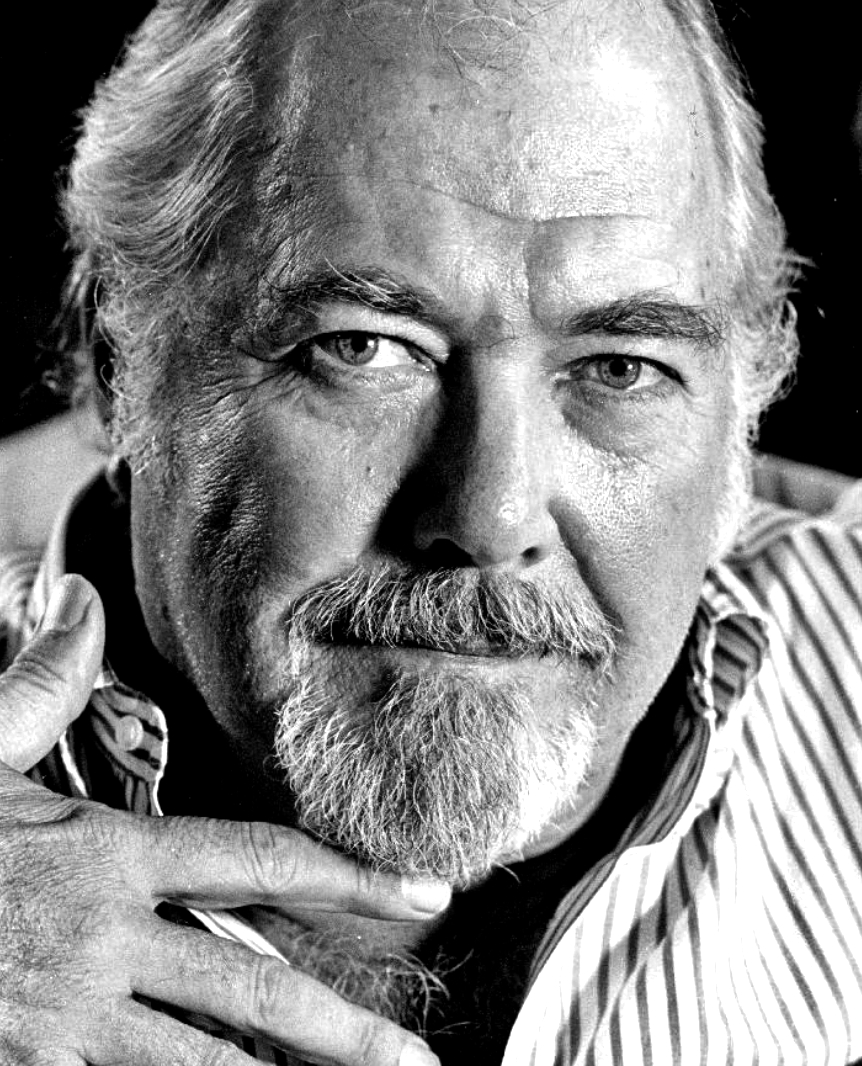
On this date in 1925, brilliant film director and screenwriter Robert Bernard Altman was born in Kansas City, Mo., into a Catholic family. Altman’s mother, a Christian Scientist who converted to Catholicism, and father, a wealthy insurance salesman, sent their eldest son to Catholic school. He was enrolled at age 16 in military school, and enlisted in the Army Air Force in 1945. Altman co-piloted B-24 bombers in World War II and participated in 46 missions over the Dutch East Indies.
Enthralled by film, Altman moved to Hollywood after his military discharge. He acted in the film “The Secret Life of Walter Mitty” (1947) and co-wrote the screenplay of a film called “Bodyguard” (1948). Struggling for a breakthrough in Hollywood, Altman returned to Kansas City and was hired by a local film company as a writer in 1950.
He began directing short films for the company and made his silver screen directorial debut with “The Delinquents” (1957). That year he returned to Hollywood and began directing the popular television series “Alfred Hitchcock Presents” (1957-58). “MASH” (1970) was his first cinematic success as a Hollywood director.
In his illustrious career as screenwriter, director and producer, Altman was nominated for seven Academy Awards: 1971 Best Director for “MASH,” 1976 Best Director and Best Picture for “Nashville,” 1993 Best Director for “The Player,” 1994 Best Director for “Short Cuts,” and 2002 Best Picture and Best Director for “Gosford Park.” He won a prestigious “Honorary Award” from the Academy in early 2006 for “a career that has repeatedly reinvented the art form and inspired filmmakers and audiences alike.”
Julie Christie, an actress who was directed by Altman in the memorable “McCabe & Mrs. Miller” (1971), noted, “Robert’s cool is part of his belief system. He won’t be bound by rules and he doesn’t expect you to be, either. … And he doesn’t expect people to be sheep” (The Guardian, April 30, 2004). Altman died at age 81 of complications from leukemia. He was survived by Kathryn Reed, his wife of 47 years, their two children and three children from two previous marriages. D. 2006.
“The day he left home [to fight in World War II], he remembers his mother and two sisters putting him on the train with the words, ‘Thank God you’ve got your religion. You’re going to need it now.’ From that day, he says, he never went to Mass again. ‘At home, you had to. Then, when I left the family, I stopped.’ “
— Journalist Suzie Mackenzie, remarking on and quoting Altman in a profile in The Guardian (April 30, 2004)
Carl Reiner
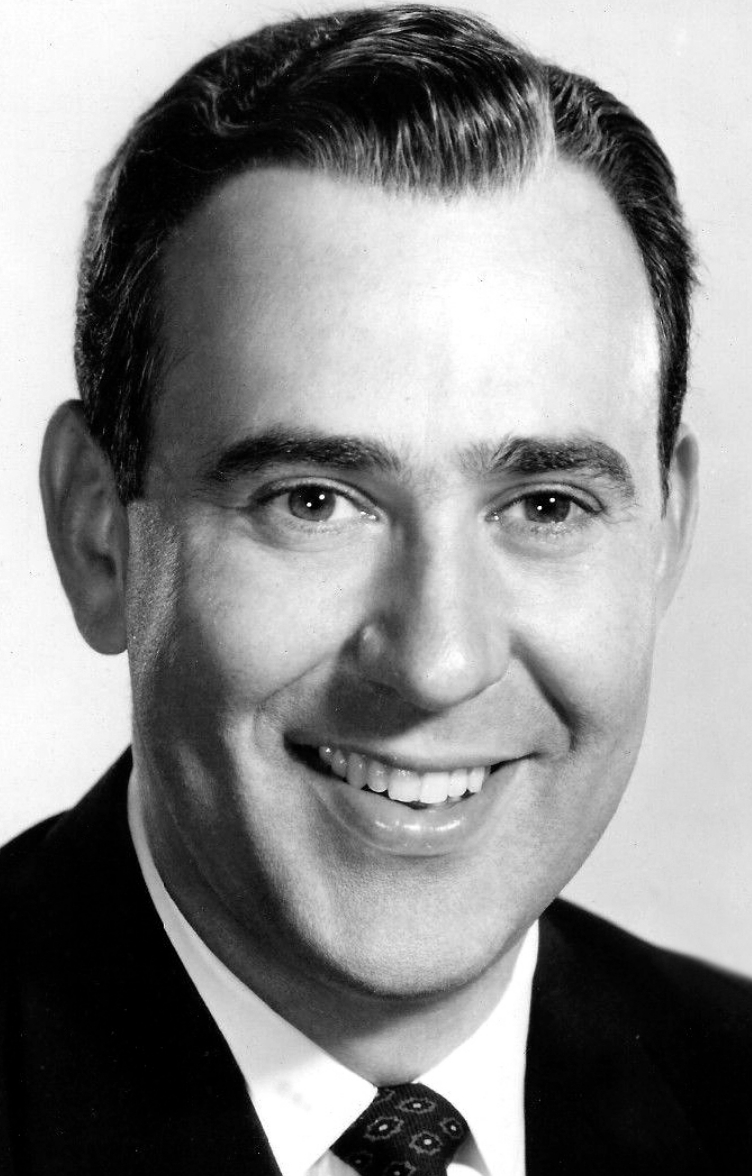
On this date in 1922, actor Carl Reiner was born in the Bronx, New York, to immigrant Jewish parents. The son of a Romanian-born watchmaker and a Hungarian mother started his distinguished entertainment career in Broadway musicals after serving in the Pacific during World War II. Among his lifetime achievements in writing, directing, producing and acting for television and film, Reiner was perhaps most noted for creating, directing and frequently appearing on “The Dick Van Dyke Show” (1961-66).
He was cast in comedian Sid Caesar’s “Your Show of Shows” (1950-54), appearing in skits while also working alongside writers Mel Brooks and Neil Simon. He directed “Oh, God!” (1977), starring George Burns and directed and co-wrote four Steve Martin films: “The Jerk” (1979), “Dead Men Don’t Wear Plaid” (1982), “The Man With Two Brains” (1983) and “All of Me” (1984). In 2007, the Director’s Guild of America honored him with an Honorary Life Member award. Over his career he won nine prime-time Emmy Awards and a Grammy.
Reiner married Estelle Lebost in 1943 and they were married until her death at age 94 in 2008. Their children are Rob (b. 1947), Annie (b. 1949) and Lucas (b. 1960). Estelle delivered the line “I’ll have what she’s having” in the famous restaurant scene in Rob’s 1989 film “When Harry Met Sally.”
Reiner wrote 18 books, including five biography/memoirs (the last announced in 2017 when he was 95). At 97 he was still active on Twitter and still had his sense of humor, publishing an illustrated children’s book in 2017 titled You Say God Bless You for Sneezing and Farting!
Reiner called himself a Jewish atheist. “I have a very different take on who God is,” he said in a 2008 Los Angeles Times interview. “Man invented God because he needed him. God is us.”
Reiner in October 2018 denounced the Trump administration and said his goal was to live to see him voted out of office. He didn’t quite make it, dying at home in Beverly Hills at age 98 about four months before the election. (D. 2020)
PHOTO: Reiner at age 38.
MOMENT: Have you always been an atheist?
REINER: I became an atheist after Hitler came. I said, what is this? If there was a God, would he not be hearing 18 million people, 16 million Jews, or 20 million other people, saying,”Please God, don't do this, make him stop?” God was so busy doing what? Striping zebras or fixing the long necks of giraffes?— Interview, Moment magazine, founded by Elie Wiesel (May 1, 2013)
Russell T Davies
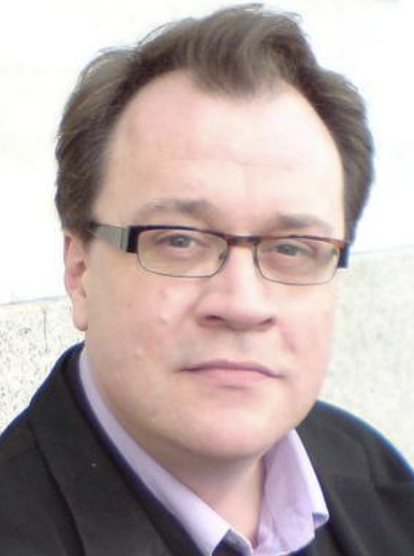
On this date in 1963, Stephen Russell Davies was born in Swansea, Wales. As a child he was called by his middle name, and he later adopted the professional name “Russell T Davies” in order to avoid confusion with a BBC Radio 4 presenter also named “Russell Davies.” As a child, Davies studied and acted with the West Glamorgan Youth Theatre in Swansea, where he also learned playwriting.
In 1984 he graduated from Oxford with a degree in English, then studied television direction at the BBC. He began to write and direct for television soon after, with his first big break in 1999, “Queer as Folk,” a drama about gay men living in Manchester that he created for Channel 4.
Davies was the showrunner and executive producer for the first four seasons of the revived “Doctor Who” on the BBC (2005-09), a family science fiction action-adventure show which he enlivened with deep characterization and occasional irreligious themes. He produced two “Doctor Who” spinoffs, “The Sarah Jane Adventures” (started in 2007), a children’s adventure show, and the more adult “Torchwood,” an international co-production between BBC Worldwide, BBC Cymru Wales and Starz.
Other TV shows and miniseries Davies has written or produced include “Casanova” (2005), “The Second Coming” (2003), “Bob & Rose,” (2001), “Dark Season” (1991) and “On the Waterfront” (1988-89).
Davies, an “out” gay and atheist, often inserts atheist and homosexual themes into his work. “The only way I can write — whether that’s good or bad — is to put my worldview into everything. I have to challenge that worldview from time to time, but in terms of the atheism of the show, I find that very powerful.” (The Boston Phoenix, July 24, 2009) He frequently depicts religion as nonexistent or very different in the future. In a nod to contemporary atheism, Richard Dawkins appears as himself as a talking head in the “Doctor Who” episode “The Stolen Earth.”
PHOTO: by Tony Hassall under CC 2.0.
“Yes, I’m deeply atheist. If they haven’t reached that point by the Year Five Billion, then I give up! When did the Doctor do that speech about believing in things that are invisible? It’s Episode 5, isn’t it? That’s another bit of atheism chucked in. That’s what I believe, so that’s what you’re going to get.”
— Davies interview, Doctor Who magazine (Sept. 14, 2005)
Nora Ephron
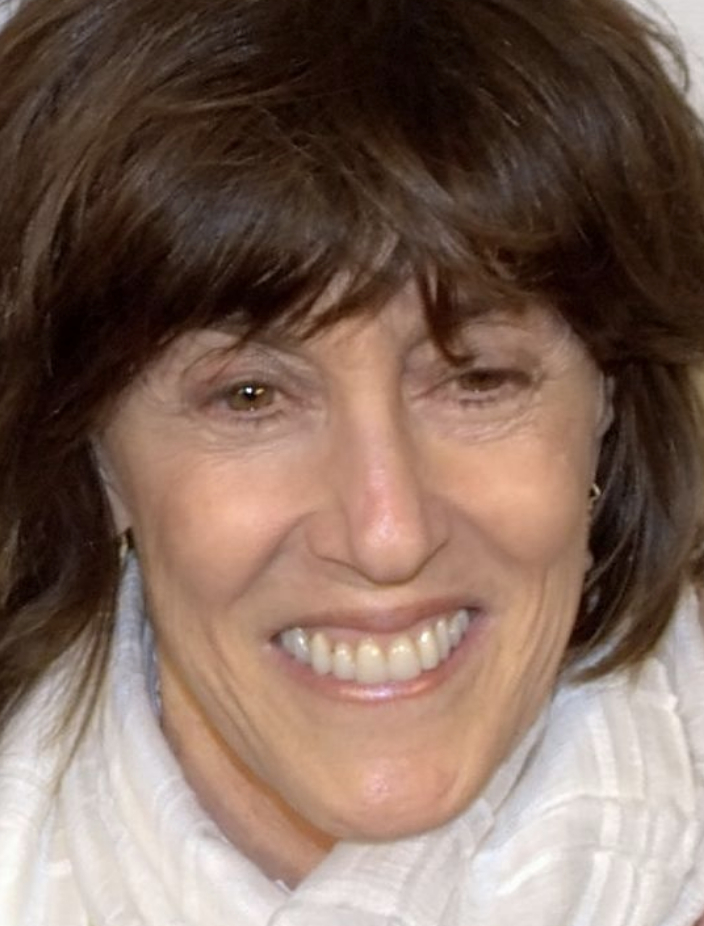
On this date in 1941, Nora Ephron was born in New York City, the eldest of four daughters of Phoebe (Wolkind) and Henry Ephron, Jewish screenwriters. She was named Nora after the protagonist in Henrik Ibsen‘s play “A Doll’s House” and grew up in Beverly Hills, Calif. She attended Wellesley College and graduated in 1962.
Shortly after graduation, she began writing for the New York Post and worked for that publication for five years. She went on to write a column for Esquire on women’s issues. Her first film, “Silkwood” (1983), which she co-wrote, starred Meryl Streep as a labor activist and nuclear whistle blower.
Ephron wrote, produced or directed over 15 movies, including “When Harry Met Sally” (1989), “Sleepless in Seattle” (1993), “You’ve Got Mail” (1998) and “Julie & Julia” (2009). Discussing with interviewer Linda Wertheimer the love of butter that Ephron’s mother and chef Julia Child shared, Ephron said a cook “can never have too much butter. That is my belief. And I stuck it into the movie. If I have a religion, that’s it.” (NPR, Aug. 7, 2009)
Kristin Marguerite Doidge in Nora Ephron: A Biography (2022) quoted longtime friend Dianne Dreyer: “I know she didn’t believe in an afterlife, and I know she wasn’t a religious person, but she certainly believed in magic. She certainly believed that one of the greatest pleasures you can have in life is doing something special for someone else.”
She was particularly adept at writing for the romantic comedy genre, but it was rom-com with a feminist bent. She received numerous awards, including a BAFTA for Best Original Screenplay for “When Harry Met Sally” in 1989 and was nominated for many others, including several Oscars and Golden Globes.
Ephron was also the author of several humorous books, novels and collections of essays, including Heartburn (1996), Wallflower at the Orgy (2007), I Feel Bad About My Neck: And Other Thoughts on Being a Woman (2008), and I Remember Nothing: And Other Reflections (2011). Her plays include “Lucky Guy,” which premiered posthumously on Broadway in March 2013 starring Tom Hanks. Ephron had spent years researching Mike McAlary, the real journalist the play is based on.
Ephron was known for her sense of humor, quick wit and enjoyment of cooking. She was an accomplished chef. She worked closely with her sister, Delia Ephron, on much of her work. Ephron had a famous, short-lived marriage with Watergate reporter Carl Bernstein (inspiring her novel Heartburn). She had two sons, Max and Jacob, with Bernstein. She was married to her third husband Nicholas Pileggi, for over 20 years and was with him until she died at age 71 of acute myeloid leukemia. (D. 2012)
PHOTO: Ephron at the 2010 Tribeca Film Festival; David Shankbone photo.
“My mother was not one to go in for superstition or miracles — godlessness was for her a form of religion, a belief in self-sufficiency above all else.”
— Jacob Bernstein, speaking about his mother the year after her death (New York Times, March 6, 2013)
Harlan Ellison
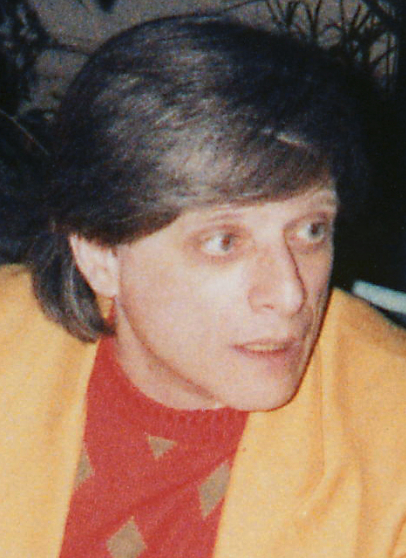
On this date in 1934, Harlan Ellison was born in Cleveland. A prolific writer, Ellison penned 75 books and over 1,700 short stories, articles, columns and screenplays. His books and collections of short stories include I Have No Mouth & I Must Scream (1967), Approaching Oblivion (1974), Deathbird Stories (1975) and Strange Wine (1978). He worked as creative consultant for “The Twilight Zone” (1985–86) and as a conceptual consultant for “Babylon 5” (1994–99).
Ellison wrote scripts for such well-known shows as “Star Trek” — including the famous episode, “The City on the Edge of Forever” (1966) — and “The Twilight Zone.” He won numerous awards for his work, including eight Hugo Awards from 1966-86; the P.E.N. International Silver Pen in 1982 for An Edge in My Voice (1985), which was serialized in L.A. Weekly; and the Georges Melies Fantasy Film Award for Outstanding Cinematic Achievement in Science Fiction Television in 1972 and 1973.
Ellison was raised Jewish, but became critical of religion. “The people who bomb churches and synagogues, they quote the bible. The people who shoot doctors use the bible,” Harlan said during a 1997 episode of “Politically Incorrect with Bill Maher.”
In the 2008 documentary “Harlan Ellison: Dreams With Sharp Teeth,” he said, “I find nothing more ridiculous and annoying than some guy who runs a kickoff back 105 yards from the end zone and drops to his knees and thanks God. Well, that’s foolish. God didn’t do it. He did it. Because if God did that for him, you mean God was against the other team? God is that mean-spirited that he has nothing better to do on Sunday afternoon than beat the crap out of a bunch of poor football players? I don’t believe in the universe being run by that kind of a God. I go with Mark Twain.”
The New York Times noted in his obituary that Ellison was “ranked with eminent science fiction writers like Ray Bradbury and Isaac Asimov,” however Ellison prefered to call his genre of writing “speculative fiction, or simply fiction.” Ellison wrote what could be considered his own epitaph: “For a brief time I was here; and for a brief time I mattered.” (The Essential Ellison, 1987.) He died at age 84 and was survived by his fifth wife, Susan Toth. (D. 2018)
PHOTO: Ellison at the L.A. Press Club in 1986; Pip R. Lagenta photo under CC 2.0.
"I think [religion] is presumptuous and I think it is silly, because it makes you believe that you are less than what you can be. As long as you can blame everything on some unseen deity, you don't ever have to be responsible for your own behavior."
— Ellison, "Harlan Ellison: Dreams With Sharp Teeth" (2008)
Ann Druyan
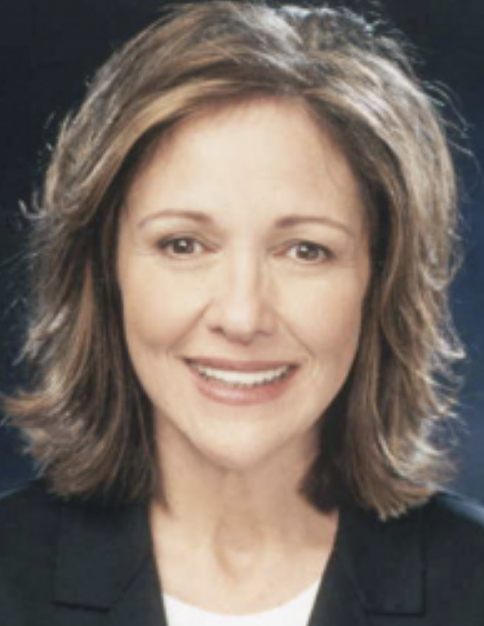
On this date in 1949, multi-talented author, popular science promoter, writer/producer and activist Ann Druyan was born in Queens, N.Y. Druyan was the longtime collaborator and spouse of astronomer Carl Sagan (until his death in 1996). The two science enthusiasts had two children together and co-wrote the best-sellers Comet (1985) and Shadows of Forgotten Ancestors (1992).
Sagan credited her as a contributor to his books Contact (1997), Pale Blue Dot (1997), The Demon-Haunted World: Science as a Candle in the Dark (1997) and Billions and Billions (posthumous, 1998), in which Druyan wrote the poignant epilogue addressing Sagan’s nonbelief and death.
Druyan co-wrote the Emmy and Peabody Award-winning television series “Cosmos,” viewed by half a billion in over 60 countries. She also wrote and produced the two updated “Cosmos” series: “A Spacetime Odyssey” hosted by Neil DeGrasse Tyson that aired on Fox and ran on The National Geographic Channel in 2014 and won multiple awards, including a Peabody; and “Cosmos: Possible Worlds,” also hosted by Tyson that debuted in 2019 on the same channels.
She served as creative director of the NASA Voyager Interstellar Record Project affixed to the Voyager I and II spacecrafts. Her articles have appeared in numerous publications, including The New York Times Sunday Magazine, Reader’s Digest, Parade, Discover and The Washington Post. She co-produced and co-created the hit film “Contact,” which starred an atheist-scientist heroine played by freethinker Jodie Foster.
Druyan produced and wrote the screenplay for “Comet,” a 3-D IMAX motion picture. Druyan, who has organized for peace and against nuclear testing, is founder and CEO of Cosmos Studios, served as secretary of the Federation of American Scientists, on the board of the National Organization for the Reform of Marijuana Laws and directed the Children’s Health Fund. She was named Harvard’s Humanist of the Year in 2017.
Druyan has always made time to advocate for science and speak out against the illusion of religion. “By disobeying god, we escape from his totalitarian prison where you cannot ask any questions, where you must never question authority. We become our human selves,” Druyan wrote in The Skeptical Inquirer (November/December 2003).
She received FFRF’s 1997 Freethought Heroine Award. She told Freethought Radio in October 2006: “The Universe revealed by science is one of far more awesome grandeur than any religion has ever posited.”
“I don’t have any faith, but I have a lot of hope, and I have a lot of dreams of what we could do with our intelligence if we had the will and the leadership and the understanding of how we could take all of our intelligence and our resources and create a world for our kids that is hopeful.”
— The Skeptical Inquirer, "Ann Druyan Talks About Science, Religion, Wonder, Awe ... and Carl Sagan" (November/December 2003)
Tony Kushner
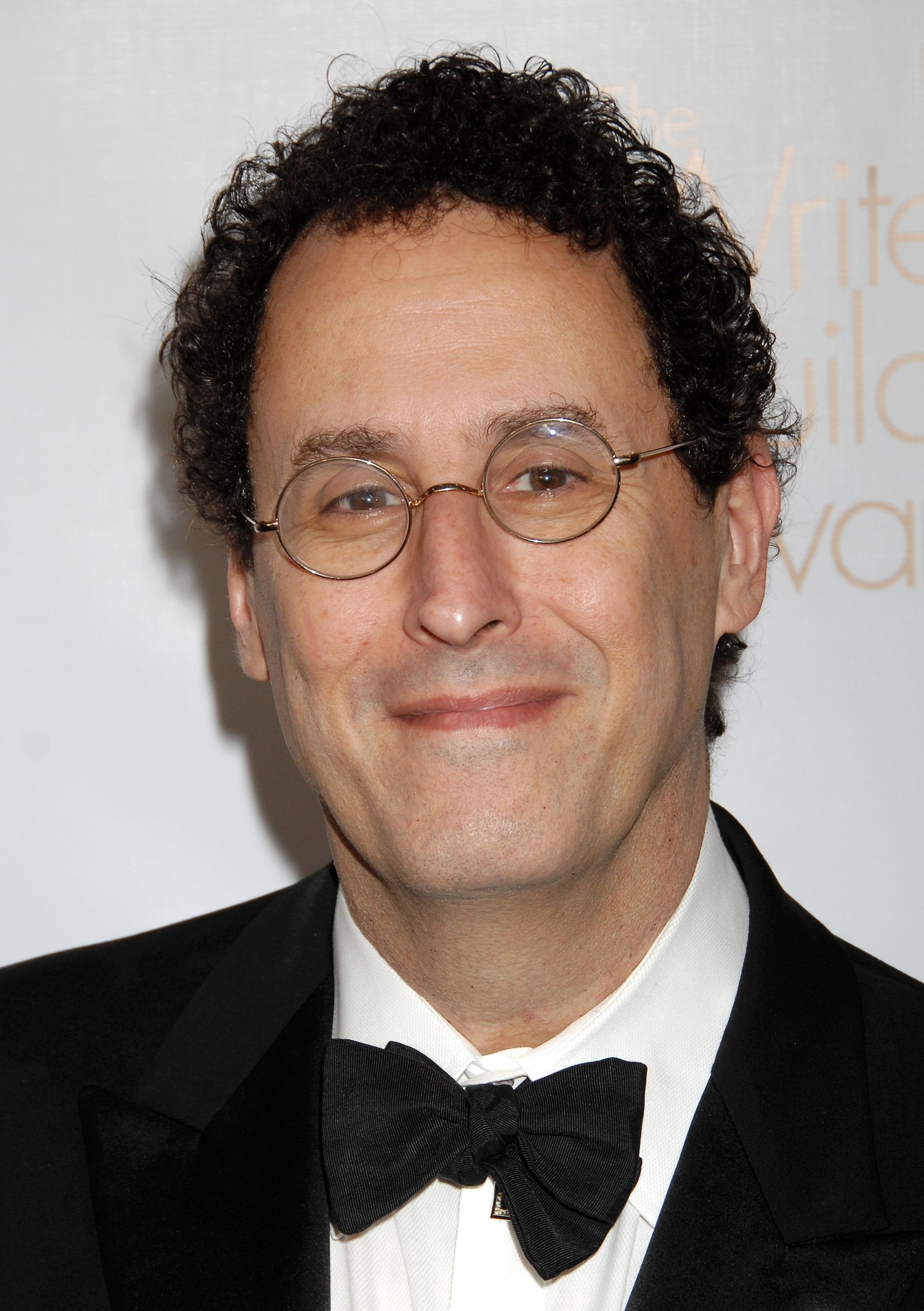
On this date in 1956, Tony Kushner was born in New York City. Kushner grew up in Lake Charles, Louisiana, then attended Columbia University, graduating in 1978. He earned a graduate degree from New York University’s Tisch School of the Arts. Kushner wrote the screenplays for Lincoln (2012), Munich (2005), and Angels in America (2004), which he had originally published as a play. Kushner has also written several plays, books and essays, including a children’s book adaptation of Brundibar (2003), which was illustrated by Maurice Sendak. Kushner won the Pulitzer Prize for Drama in 1993, the Tony Award for Best Play in 1993 and 1994 and an Emmy in 2004.
He won the 2012 New York Film Critics Circle Award for Best Screenplay and the Paul Selvin Award for “Lincoln.” The latter recognizes a script that champions civil liberties. He received a National Medal of Arts from President Barack Obama in 2013. It’s the highest honor bestowed to artists and arts patrons by the U.S. government. In 2018 it was announced that he was writing the screenplay for a remake of the film “West Side Story” to be directed by Steven Spielberg and scheduled for release in December 2020. It earned a plethora of awards and nominations in 2022, including Best Performance by an Actress in a Supporting Role for Ariana DeBose (Oscar, BAFTA, SAG),
Kushner describes himself as an agnostic Jew and is very outspoken in his support of liberal politics. He has criticized right-wing theocrats in Israel and has advocated for a secular, constitutional democracy for that country. Kushner had a commitment ceremony with Mark Harris, an editor for Entertainment Weekly, in 2003 and the couple officially married in 2008.
“I wrote the play in part out of my feeling as an agnostic. Huge questions about god emerge whenever a crisis the size of the AIDS epidemic or I think the political crisis of Reaganism appear on the scene. One begins to ask questions about the benevolence or presence of any kind of consciousness in the universe. I asked those questions — I was thinking a lot about death, I was thinking a lot about my own mortality, I was thinking a lot about justice and whether or not the world would resume what seemed to me a serious hampered progress towards something like social justice with someone like Reagan in the White House.”
— Kushner in an interview on his play "Angels in America" (NPR, Dec. 9, 2003)
Stanley Kubrick
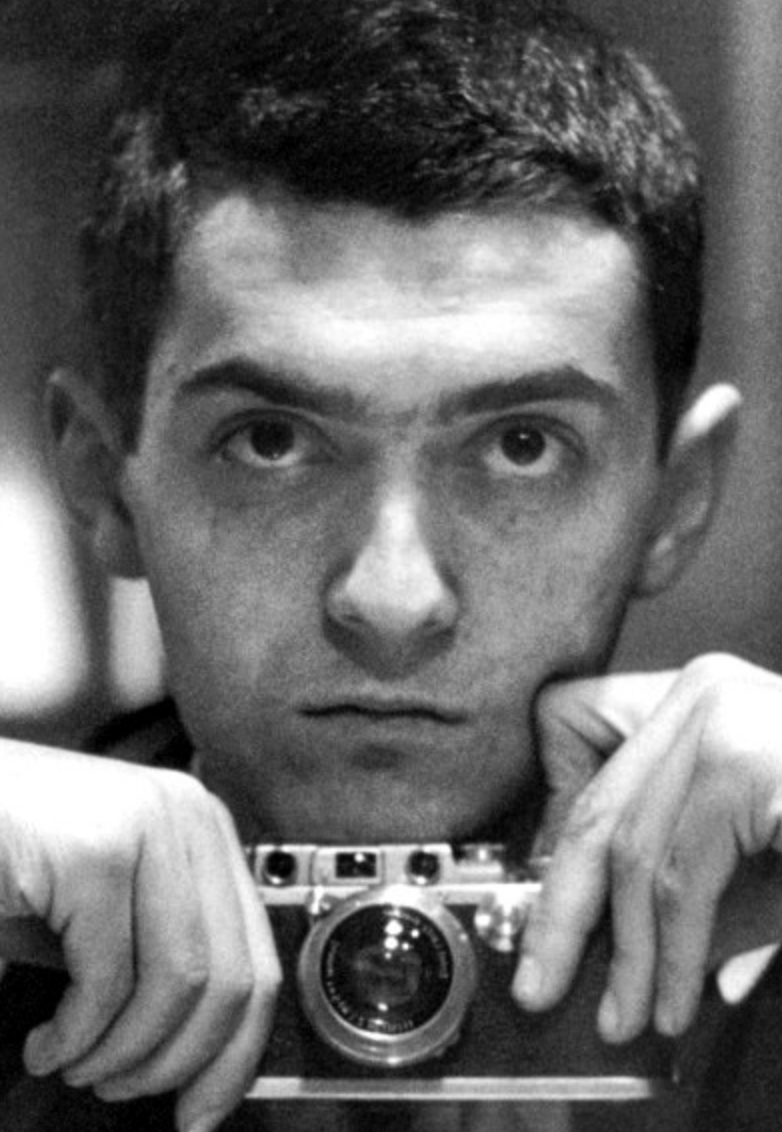
On this date in 1928, filmmaker Stanley Kubrick was born in New York City to secular Jewish parents, Sadie (Perveler) and Jacob Kubrick, a physician. He gave up his idea of becoming a jazz drummer after his father gave him a Graflex camera at age 13, and his photographic talent blossomed.
Shortly after graduating from high school in 1945, he snapped a photo of a weeping man surrounded by newspapers announcing FDR’s death. He submitted it to Look magazine, received $25 and was hired by Look a year later as an apprentice photographer. In 1948 he married Toba Metz, his high school sweetheart, in a union that lasted three years.
After making several low-budget short films, he directed the first of his 13 feature films, “Fear and Desire,” in 1952. Following that were “The Killing” (1956), “Spartacus” (1960), “Lolita” (1962), “Dr. Strangelove, or How I Learned to Stop Worrying and Love the Bomb” (1964), “2001: A Space Odyssey” (1968), “A Clockwork Orange” (1971), “Barry Lyndon” (1975), “The Shining” (1980), “Full Metal Jacket” (1987) and “Eyes Wide Shut” (1999).
His critically acclaimed “Spartacus” featured an all-star cast including Kirk Douglas and Laurence Olivier. The screenplay was written by blacklisted Hollywood Ten victim Dalton Trumbo. The film won four Oscars and received six Golden Globe nominations. President John F. Kennedy crossed an American Legion picket line to watch it.
Kubrick’s second marriage, to dancer and actress Ruth Sobotka, ended in 1957. The next year he married actress Christiane Harlan. They had two daughters, Vivian and Anya, and, concerned about violence in America, in 1961 moved to England, where they lived until his death 40 years later.
British censors were also more forgiving about his movie “Lolita” and its acceptance of Vladimir Nabokov‘s character Humbert Humbert, obsessed with a barely pubescent girl played by Sue Lyon. Lolita’s mother, played by Shelley Winters and in love with Humbert, asks him if he believes in God. He answers, “The question is does God believe in me?”
Kubrick’s science fiction epic “2001: A Space Odyssey,” co-written with Arthur C. Clarke, is widely seen as among the most influential films of all time and one subject to a variety of interpretations. Kubrick refused to divulge what the meaning was and if some critics were correct in calling it “profoundly religious.”
Kubrick: “How much would we appreciate La Gioconda today if Leonardo had written at the bottom of the canvas: ‘This lady is smiling slightly because she has rotten teeth’ or ‘because she’s hiding a secret from her lover?’ It would shut off the viewer’s appreciation and shackle him to a ‘reality’ other than his own. I don’t want that to happen to ‘2001.’ ” (Playboy magazine interview, September 1968)
He further says in the interview that humans have to create their own meaning. “The most terrifying fact about the universe is not that it is hostile but that it is indifferent. … However vast the darkness, we must supply our own light.” He would say that “chance chemical reactions” over billions of years created life on Earth, not God or some godlike being.
He died of unexpectedly during the night of a heart attack at age 70 a week after screening the final cut of “Eyes Wide Shut.” (D. 1999)
PHOTO: Kubrick at age 21 in Look magazine; public domain photo.
“I don't believe in any of earth's monotheistic religions, but I do believe that one can construct an intriguing scientific definition of God, once you accept the fact that there are approximately 100 billion stars in our galaxy alone, that each star is a life-giving sun and that there are approximately 100 billion galaxies in just the visible universe.”
— Kubrick interview (Playboy, September 1968)
Trey Parker
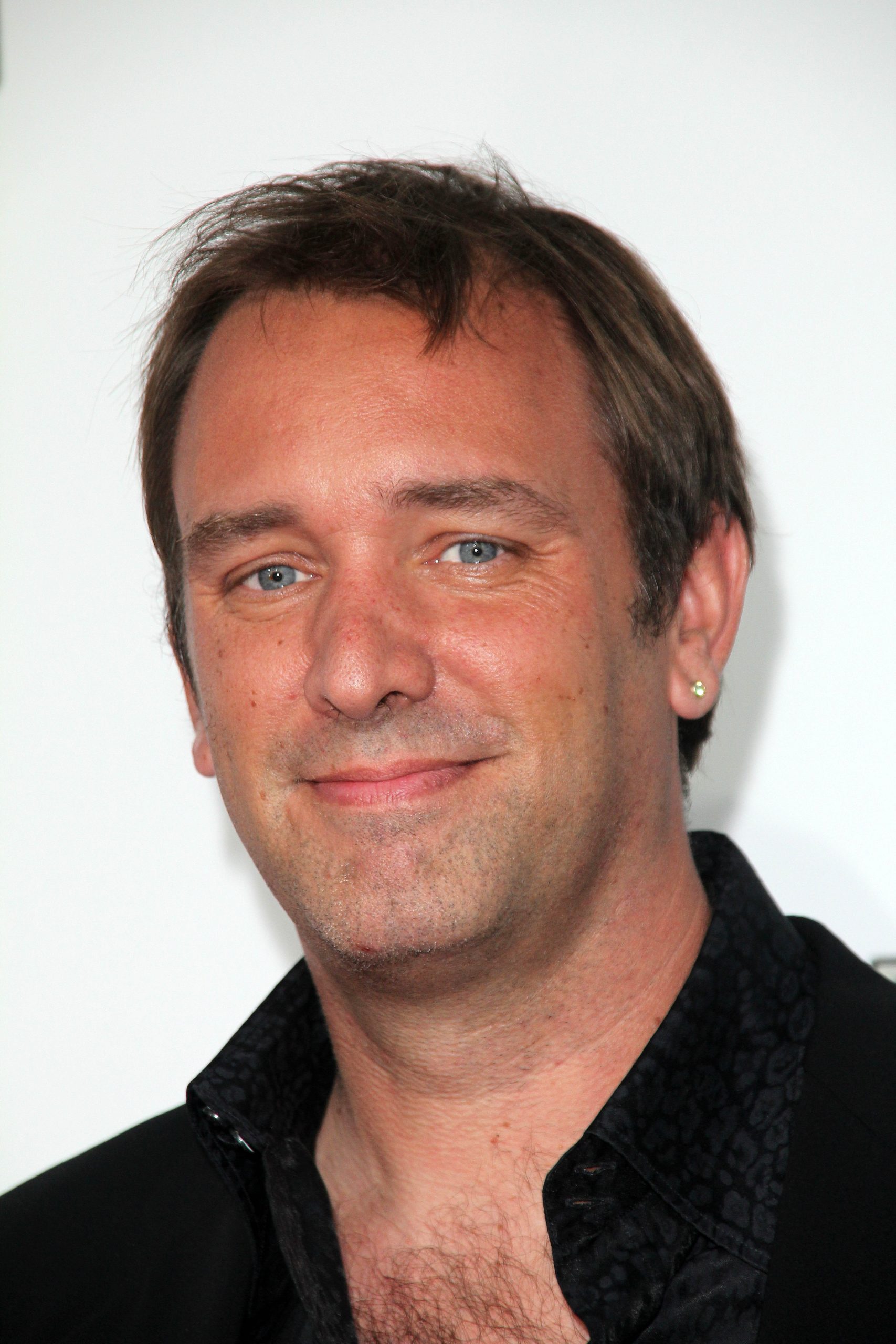
On this date in 1969, Trey Parker was born Randolph Severn Parker III in Denver, Colorado. He attended the Berklee School of Music before transferring to the University of Colorado at Boulder, where he studied film and music and met his long-time collaborator Matt Stone. After leaving school, Parker directed a film called “Cannibal! The Musical” (1993). Parker and Stone collaborated on various projects, including an animated short entitled “The Spirit of Christmas” (1996), in which Santa Claus and Jesus fight about the true meaning of Christmas (the answer is that the true meaning of Christmas is presents, not fighting).
This short led to a 1997 deal with Comedy Central to make “South Park,” an animated show starring four third-graders: Kyle, Stan, Cartman, and Kenny (characters first explored in the short), which is frequently satirical and often employs crude humor. Parker and Stone do most of the male characters’ voices themselves.
The show is set in the fictional town of South Park, Colorado. Parker and Stone made a movie in 1999 titled “South Park: Bigger, Longer and Uncut”. “South Park” has been nominated for several Emmys and has won Outstanding Animated Program three times. The three-part “Imaginationland” won 2008’s Emmy for Outstanding Animated Program. Parker is also a Tony winner with “The Book of Mormon,” another collaboration with Stone, winning nine Tonys in 2011, including Best Musical, Best Original Score and Best Book of a Musical.
Parker and Stone are not afraid to satirize sensitive subjects, including religion. Jesus (voiced by Stone) has appeared in many episodes, for example as a superhero and the leader of the Super Best Friends in an episode entitled “Super Best Friends,” which originally aired on July 4, 2001. This group also featured other religious figures, including Buddha, Lao Tse, Krishna, Joseph Smith, and Muhammed. (Islamic law traditionally prohibits visual depictions of their prophet.)
In 2006, Stone and Parker’s attempt to depict Muhammed in the two-parter “Cartoon Wars” in response to the Danish cartoon controversy was censored by Comedy Central. In the episode “200,” Muhammad is alleged to be totally hidden inside a bear suit inside a U-Haul. In Muhammad’s original portrayal on the show (in “Super Best Friends”), he was a superhero with the powers of flame; however, he had since gained the superpower of not being able to be made fun of, which Tom Cruise and other celebrities are shown trying to obtain for themselves in “200” and its follow-up, “201.” (Death threats over Muhammad’s portrayal in “201” received in 2010 led “Super Best Friends” to be pulled from syndication, four years after “Cartoon Wars” was censored.)
“All the religions are super funny to me. The story of Jesus makes no sense to me. God sent his only son. Why could God only have one son and why would he have to die? It’s just bad writing, really. And it’s really terrible in about the second act.”
— Parker interview with ABC "Nightline" (Sept. 22, 2006)
Rod Serling
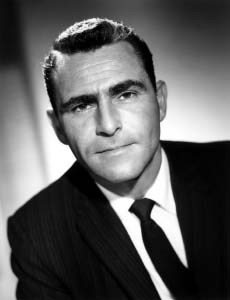
On this date in 1924, Rodman Edward Serling was born in Syracuse, N.Y. He enlisted in the U.S. Army in 1942, served in the Philippines and Japan and was discharged in 1945. He went on to graduate from Antioch College in Ohio in 1950 with a B.A. in English literature and drama, where he began writing scripts for radio programs. He met Carolyn Kramer at Antioch in 1948 and they had two daughters, Jodi and Anne. He also joined a Unitarian church at Antioch.
Serling started working as a radio and television writer, eventually landing in New York City. “Kraft Television Theatre” aired Serling’s 72nd script, “Patterns,” in 1955 and it won him an Emmy. Two more Emmys soon followed, in 1956 for “Requiem for a Heavyweight,” which was adapted into a film in 1962, and “The Comedian” (1958), both episodes of the show “Playhouse 90.” Serling is most famous for hosting “The Twilight Zone” (1959–64), as well as writing 92 of its 156 scripts.
He was passionate about social issues, opposing war, racism and capital punishment, and he often addressed these controversial topics in scripts for “The Twilight Zone.” Serling won two more Emmy Awards in 1960 and 1961 for outstanding writing in drama for his work on “The Twilight Zone,” as well as a 1963 Golden Globe Award for best television producer. His other work includes writing the script for the films “Planet of the Apes” (1968), “The Yellow Canary” (1963) and “Seven Days in May” (1964). He hosted and contributed scripts to the series “Night Gallery” from 1970-73.
He was a heavy smoker and died at age 50 after his third heart attack. (D. 1975)
"Theologically speaking, Rod was what we call a naturalistic humanist, and that was the underlying philosophy of my pulpit. Racial issues, class, power — you find all of these in his writings, and he found reinforcements for his viewpoints in his congregation."
— Pastor Ernest Pipes, Unitarian Universalist Community Church of Santa Monica, Calif., which Serling attended. (uuworld.org, Nov. 1, 2007)
